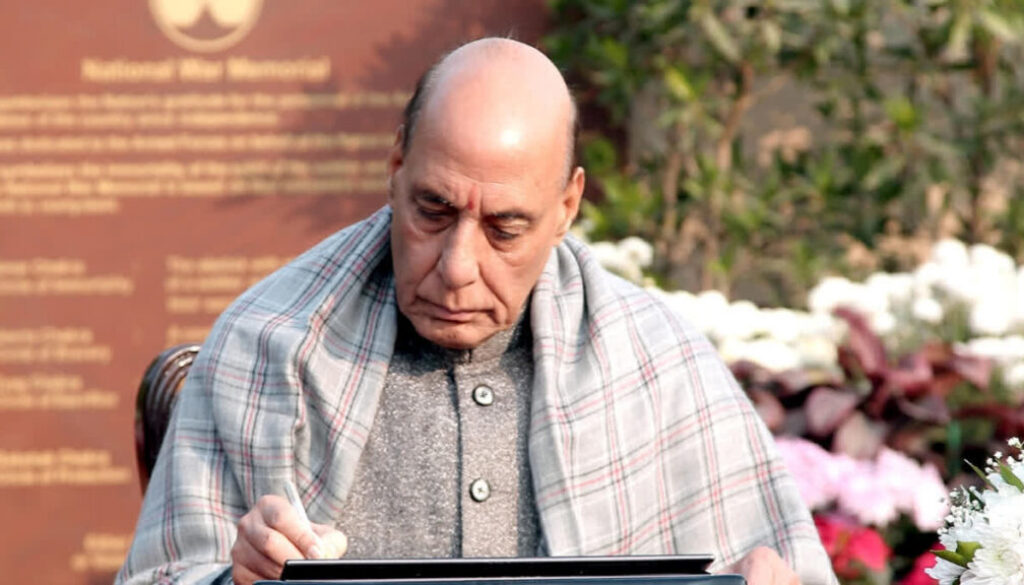Defence Ministry Unveils Vision for 2025
Paving the Way for Modernization and Strengthening Global Stature
The Defence Ministry has laid out an ambitious roadmap for the year 2025, marking it as the “Year of Reforms” in a bid to modernize the nation’s defence sector and improve its global standing. The reforms will focus on simplifying acquisition procedures, facilitating technology transfer, and fostering public-private partnerships, all while focusing on collaboration across various stakeholders.
Simplifying Acquisition Procedures
A core component of the reform agenda is the streamlining of defence acquisition processes. The Ministry has emphasized the need to make these procedures simpler and more time-sensitive, aiming for quicker decision-making that will facilitate the rapid development of robust defence capabilities. By reducing bureaucratic delays, the Ministry hopes to ensure that defence acquisitions and upgrades are completed promptly, boosting the overall efficiency and operational readiness of the armed forces.
Encouraging Technology Transfer and Knowledge Sharing
One of the significant pillars of the reforms is facilitating technology transfer and encouraging knowledge sharing between the defence sector and civil industries. This step aims to bridge the gap between the two sectors, fostering innovation and technological advancements that can benefit both military and civilian industries. By fostering such cross-sector collaborations, India aims to unlock new opportunities for growth and innovation within the defence ecosystem.
Promoting Public-Private Partnerships
The Ministry has outlined a clear focus on promoting public-private partnerships (PPP), recognizing the importance of creating an environment that makes doing business easier for private players in the defence industry. Through reforms aimed at improving the ease of doing business, the Ministry hopes to attract investment, encourage innovation, and boost domestic production of defence goods. This push will also support the ‘Atmanirbhar Bharat‘ (Self-Reliant India) initiative, which seeks to reduce dependence on imports and develop indigenous capabilities.
Collaboration and Breaking Silos
Another key aspect highlighted during the meeting was the need for better collaboration across various stakeholders in the defence ecosystem. By breaking existing silos, the Ministry aims to create a more cohesive and integrated approach to defence planning, research, and procurement. The collaboration will extend to industry leaders, academic institutions, and global partners, ensuring that India’s defence sector remains agile and adaptable to changing global dynamics.
Positioning India as a Credible Defence Exporter
The Ministry has expressed its intent to position India as a credible exporter of defence products. This will involve fostering research and development (R&D) within the country and forging partnerships between Indian industries and foreign original equipment manufacturers (OEMs). These collaborations will not only help elevate the quality of defence products but will also contribute to making India a key player in the global defence market.
Celebrating Indian Culture and Indigenous Capabilities
A significant part of the reforms also focuses on instilling a sense of pride in India’s indigenous culture and ideas. The Ministry emphasized the importance of fostering confidence in the country’s ability to meet global defence standards through its capabilities. By promoting the development of self-reliant defence technologies and practices suited to India’s unique conditions, the Ministry aims to inspire pride among the people and strengthen the nation’s security.
While drawing inspiration from best practices in modern militaries, the reforms will ensure that these practices are tailored to India’s specific needs, reflecting the nation’s values and strategic priorities.
Conclusion
The Defence Ministry’s vision for the “Year of Reforms” in 2025 reflects a forward-thinking strategy aimed at transforming India’s defence sector. By simplifying acquisition procedures, encouraging innovation through public-private partnerships, and positioning India as a leader in defence exports, the Ministry seeks to build a future-ready military. With a focus on collaboration, technology transfer, and Indigenous capabilities, these reforms aim to strengthen national security while positioning India as a global defence powerhouse.

